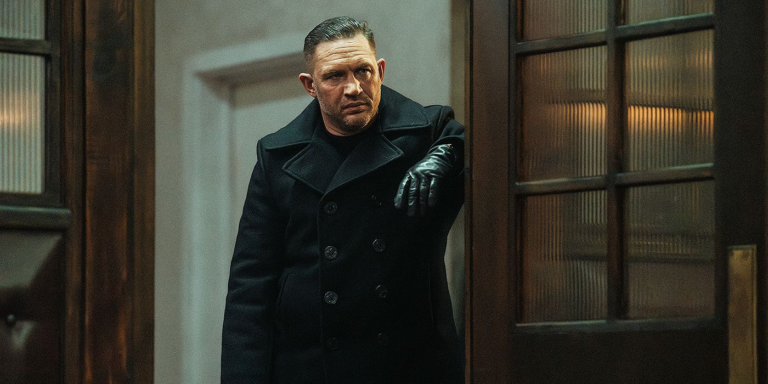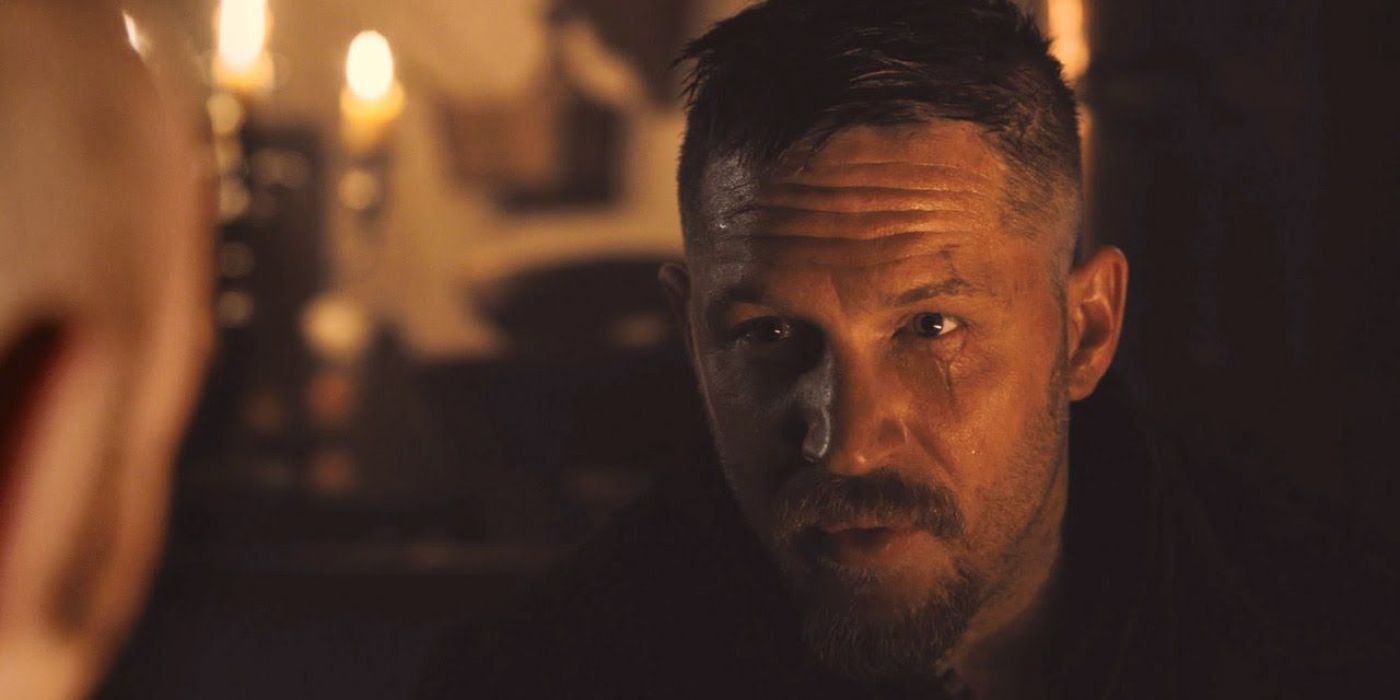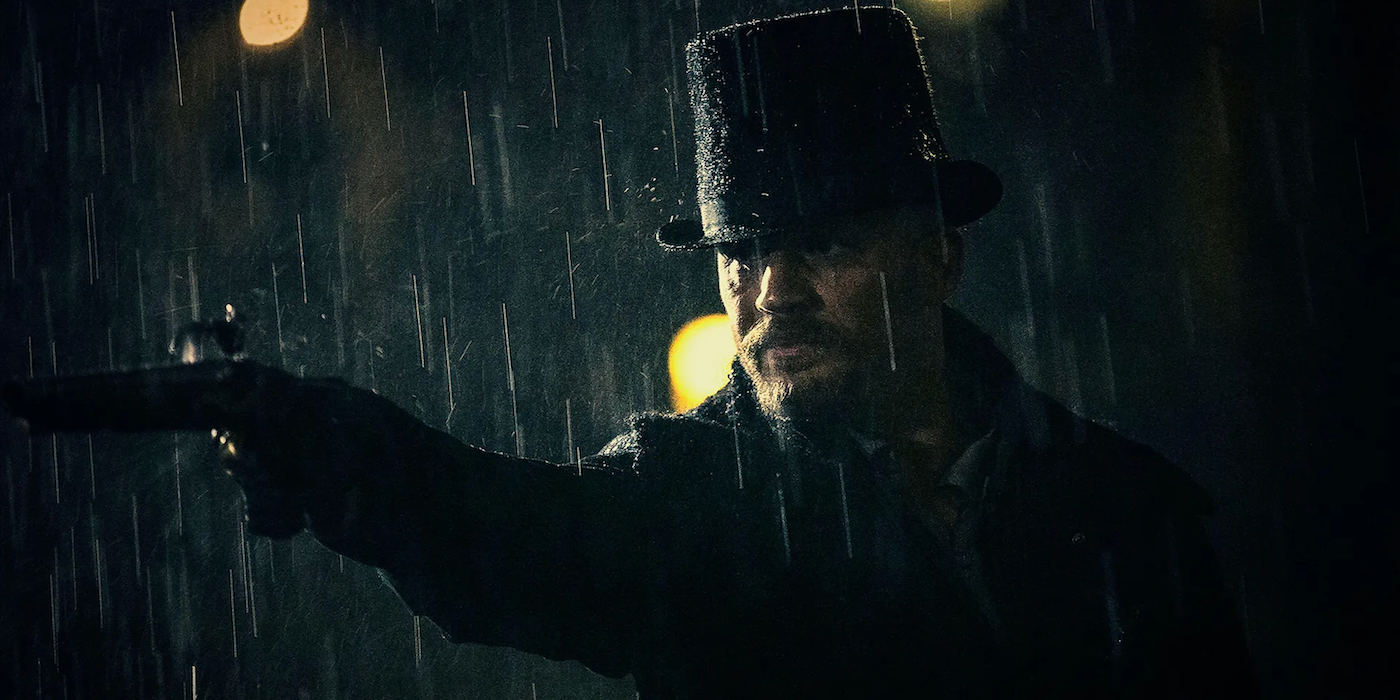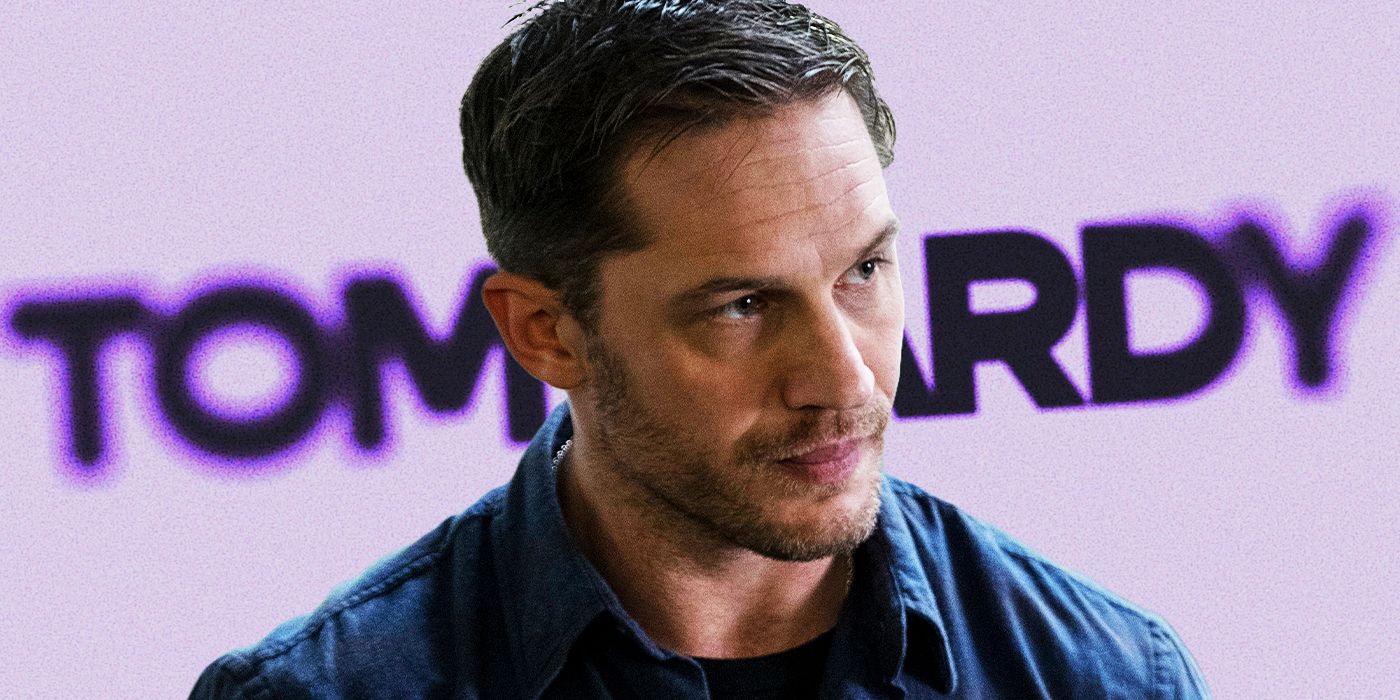Tom Hardy is undoubtedly one of the most renowned and respected actors of all time, showcasing a broad range of roles, including Max in Mad Max: Fury Road, Bane in The Dark Knight Rises, and Charles Bronson in Bronson. However, perhaps the reason his performance in MobLand, as the Harrigan family enforcer, Harry, felt so fresh and impressive was that it was perhaps one of the most “normal” roles he has taken, where he is not under heavy makeup or putting on a thick accent, and fewer people are saying “I never realized it was Tom Hardy.” However, while there have been promising signs of a Season 2 of MobLand a great fear is that, because of the stacked fear, finding the correct time in everybody’s schedule could be almost impossible.
That isn’t to say you can’t find any other gritty crime dramas that show Tom Hardy in a threatening role as he navigates the politics of London. The BBC eight-part series, Taboo, follows Hardy’s James Delaney, who returns to London in 1814 after 12 years in Africa to lay claim to his inheritance, which includes a tiny piece of land that represents a huge political opportunity for both the United States and the British monarchy, who are approaching the end of their war with each other. While both Taboo and MobLand are crime dramas set in London, there are key differences that will make Taboo a refreshing yet still reminiscent experience. James Delaney is far more mystical than Harry ever was; The setting of 19th-century London allows for a far darker and gothic subject matter, and the way the cast is structured creates a greater focus on Hardy’s performance as the lead.
Hardy’s Delaney Engages in Terrifying Voodoo to Achieve Some of His Goals in ‘Taboo’
In MobLand, Harry is an intimidating prospect for everyone he comes into contact with, even powerful enemies such as Richie (Geoff Bell) and Kat McAllister (Janet McTeer), though he is thoroughly grounded in the kind of threat he poses. However, in Taboo, due to his time spent in Africa and heritage, James Delaney carries with him a mystical terror, with scenes of him covered in ash and spitting blood while visions are presented to the audience, creating a sense of otherness. Many times, he appears to know things he shouldn’t, such as traitors in his midst and some of the last words of his father. He may know these due to spies, but it causes others to underestimate him as simply delusional, only for his brutality and cunning to bring members of the East India Company, who want his land for their own interests, to heel such as Sir Stuart Strange (Jonathan Pryce), who has a disturbing past with Delaney.
‘Taboo’s Georgian Setting Allows For a Far Darker Tone
Arguably, if MobLand had included voodoo and visions, people would lose faith in the show as the modern-day metropolitan City of London simply doesn’t suit these kinds of magical injections. However, when people think of London in the 19th century, they will think of Jane Eyre, Sweeney Todd, and Jack the Ripper. These bring up gothic and horrific imagery of dark, gloomy streets where all types of atrocities are committed. Therefore, Taboo lives up to its name by engaging with disturbing ideas and bloody violence. At times, Delaney’s violence becomes animalistic, biting chunks out of people’s necks and slashing a man’s guts out while staring him in the eye. Furthermore, Delaney’s main drive personally is to escape with and have sex with his half-sister, Zilpha (Oona Chaplin), who struggles to escape her incest-ridden past that is regularly referenced.
Furthermore, the politics of London are thoroughly different in this time period, allowing for more institutional conflict and colorful characters. From derelict brothels to a number of ugly brutes willing to do anything for a penny, even children cutting out the teeth of dead bodies, everyone we meet has a price for what boundaries they are willing to cross. While MobLand‘s political actors are singular people, such as McAllister, Conrad Harrigan (Pierce Brosnan), and Richie, Taboo‘s conflict is more binary, with Delaney feeling like the average person taking on the corrupt ruling class of the monarchy and East India Company. This means that, even though Delaney is savage in his action, we feel an intense sympathy for his character and find it entertaining to watch him make fools of the gentry.
Related
The 10 Best Tom Hardy Performances From the Last 10 Years
“My name is Max. My world is fire. And blood.”
‘Taboo’s Stacked Supporting Cast Differs From ‘MobLand’s Ensemble
Like MobLand, Taboo is filled with incredibly famous actors in several roles, from Stephen Graham‘s Artful Dodger-type, Atticus, to Pryce’s nasty Stuart, to Tom Hollander‘s eccentric chemist, Cholmondeley. However, the way these characters are structured around Delaney is thoroughly different to the way Brosnan, Helen Mirren, and Paddy Considine‘s characters serve the story in MobLand. While MobLand uses these characters as arguably co-protagonists, with their own storylines that are just as important as Harry’s, Taboo keeps them far more in the background, only existing when they are needed for Delaney’s plot. That isn’t to say they aren’t fabulously written, but what it does mean is that we are invited to focus on and scrutinize Hardy’s brilliant performance more so than we could for MobLand, where he is given far less screen time. Arguably, this is incredibly necessary in Taboo, as a lot of work needs to be done to make sure we understand and sympathize with the enigma that is James Delaney.
Overall, if you are looking for your next Tom Hardy drama to binge, there is no better recommendation than Taboo. The writing of Steven Knight is as unique as ever in a gritty and gothic 19th-century London. You may not experience the same plethora of subplots all led by their own titanic actor, but each character is given an infectious energy. In the end, the darker and disturbing moral explorations serve the setting beautifully and make this eight-part series an absolutely worthwhile watch.

- Release Date
-
2017 – 2016
- Network
-
BBC
- Showrunner
-
Steven Knight
- Directors
-
Anders Engström, Kristoffer Nyholm




